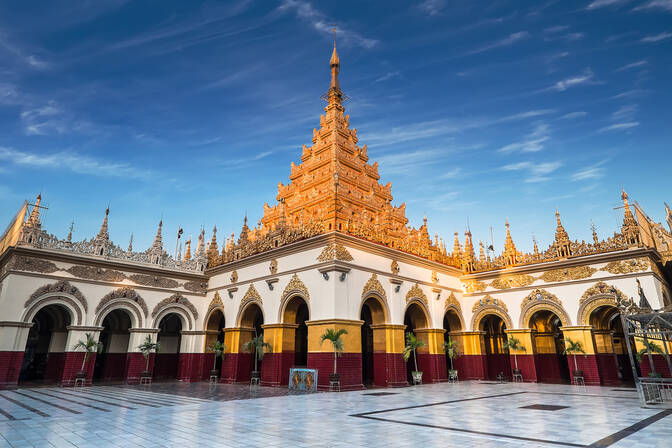Thingyan
13 - April 14, Sunday – Monday

What is Tingjan?
Tingjan is a traditional Myanmar festival that lasts for several days and includes ritual activities, celebrations, and colorful street festivals. One of the key features of this festival is the use of water, which symbolizes cleansing, renewal, and new beginnings. During Tingjan, people splash water, engage in water battles, and pour water over Buddha statues in temples to cleanse themselves of sins and ensure good luck in the new year.
Goals of the Tingjan Festival
Tingjan is a time when people express gratitude for the past year and hope for prosperity in the year ahead. The main goals of the festival are:
1. Purification: Water is used as a symbol of cleansing from old grudges and sins, to begin the new year with a clean heart.
2. Celebration of new beginnings: This day symbolizes the start of a new year, new beginnings, and changes.
3. Uniting people: Tingjan is a time of joy and togetherness, when people take to the streets to participate in public celebrations and fun games.
4. Honoring Buddha: During the celebrations, religious rituals are performed, including the bathing of Buddha statues, which is an act of respect and devotion.
How is Tingjan Celebrated?
Tingjan is not only a religious festival but also a cultural celebration filled with traditions and joy. Here are some of the main traditions that accompany the day:
1. Water battles: People take to the streets armed with buckets, hoses, and water guns to engage in water fights. This fun activity brings together people of all ages and social groups.
2. Religious ceremonies: In temples, rituals are held where Buddha statues are bathed, and worshippers pour water over the statues, asking for blessings and good fortune in the new year.
3. Parades and street processions: In major cities, vibrant parades are held with music, dance, and costumes. Street processions are an important part of the celebration, creating an atmosphere of joy and unity.
4. Family gatherings: During this time, people gather with their families to spend time together, prepare traditional dishes, and exchange gifts.
5. Festive foods: Traditional dishes such as rice, sweets, and drinks are prepared during the festival, symbolizing prosperity and well-being.
Significance of Tingjan
Tingjan holds deep cultural and religious significance for the people of Myanmar. This festival symbolizes the beginning of a new year and a new hope for the future. Moreover, it strengthens bonds between people and communities, creating an atmosphere of joy and togetherness. Water, as a symbol of purification, helps people rid themselves of old grudges and sins, and attract good luck and prosperity. On this day, not only is the celebration important, but also the spiritual cleansing that allows people to start the new year with a clean heart and clear mind.
Tingjan is a time for renewal, joy, and traditional rituals that allows people to take a break from the daily grind and prepare for positive changes in life.
